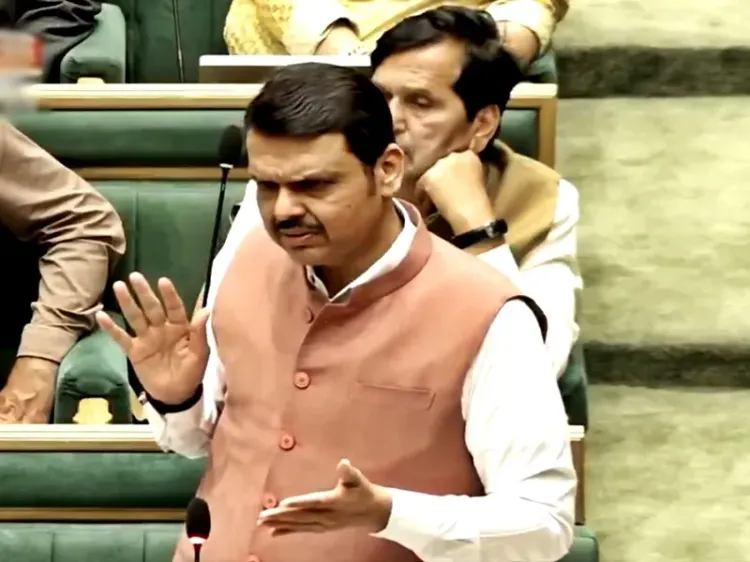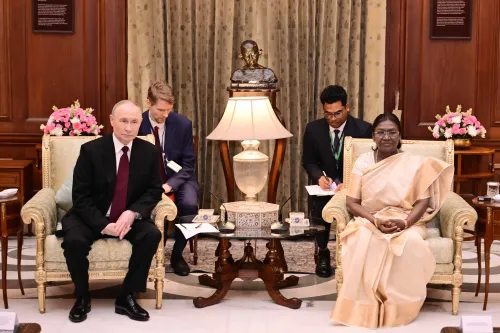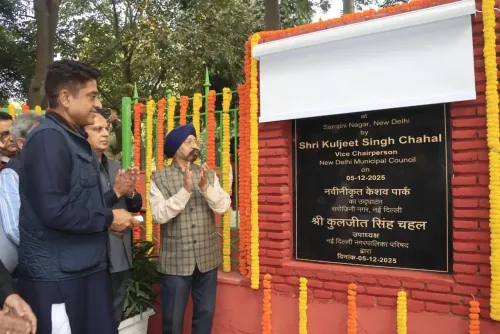Maharashtra Assembly Approves the Maharashtra Prisons and Correctional Services Bill

Nagpur, Dec 20 (NationPress) The Maharashtra Assembly on Friday unanimously approved the Maharashtra Prisons and Correctional Services Bill, 2024, which aims to unify laws concerning the management of prisons, correctional services, and prisoners.
The Bill was introduced by Chief Minister Devendra Fadnavis, who informed the assembly about plans to build a high-security prison in Mumbai specifically for terrorists and serious offenders.
Additionally, a detention facility will be established in Mumbai to house foreign nationals engaged in various crimes, such as drug trafficking and illegal residency. This Bill is modeled after the Central Government's Model Prisons Act, 2023, which has been shared with all states.
Both ruling and opposition members voiced numerous suggestions for enhancing the correctional services for inmates.
BJP member Atul Bhatkhalkar called for the construction of a detention center in Mumbai for foreign nationals and emphasized the need to decrease the population of undertrial prisoners.
NCP member Sana Malik advocated for an increase in the number of doctors in prisons, assuring that the government will address the shortage of medical personnel given the overcrowding of inmates.
Shiv Sena-UBT member Aaditya Thackeray proposed the incorporation of artificial intelligence in generating lists of released prisoners.
In response, Fadnavis clarified that the government is not offering luxurious facilities in prisons but is focusing on upgrading them in line with the human rights of inmates. He elaborated that the Bill outlines various categories of prisons, including special prisons, open prisons for women, temporary prisons, open colonies, and Borstal institutions.
Furthermore, the Bill stipulates the segregation of prisoners into different categories, such as women, transgender individuals, undertrials, convicted criminals, high-risk inmates, habitual offenders, recidivists, young offenders, and civil detainees.
Fadnavis noted that around 1,600 prisoners remain incarcerated despite having received bail due to inability to pay bond money. He stated that a committee led by the district collector will review such cases and facilitate their release upon bond payment.
The Bill also suggests special provisions for women and transgender prisoners, including dedicated wards in prison hospitals. Additionally, it plans to offer aftercare rehabilitation services for all prisoners released from custody to aid their reintegration into society.
Moreover, the legislation proposes the use of technology for efficient management and supervision of prisons, enhancing the safety and security of inmates. This may involve biometrics, closed-circuit television, scanning and detection devices, radio frequency identification, and video conferencing facilities.
An undertrial review committee will be established in each district to conduct regular assessments of undertrial prisoners across all facilities and to expedite the disposal of their cases while making appropriate recommendations to trial courts.
Lastly, the prison and correctional services will be organized, and welfare funds for all prison officers, staff, and inmates will be instituted.










